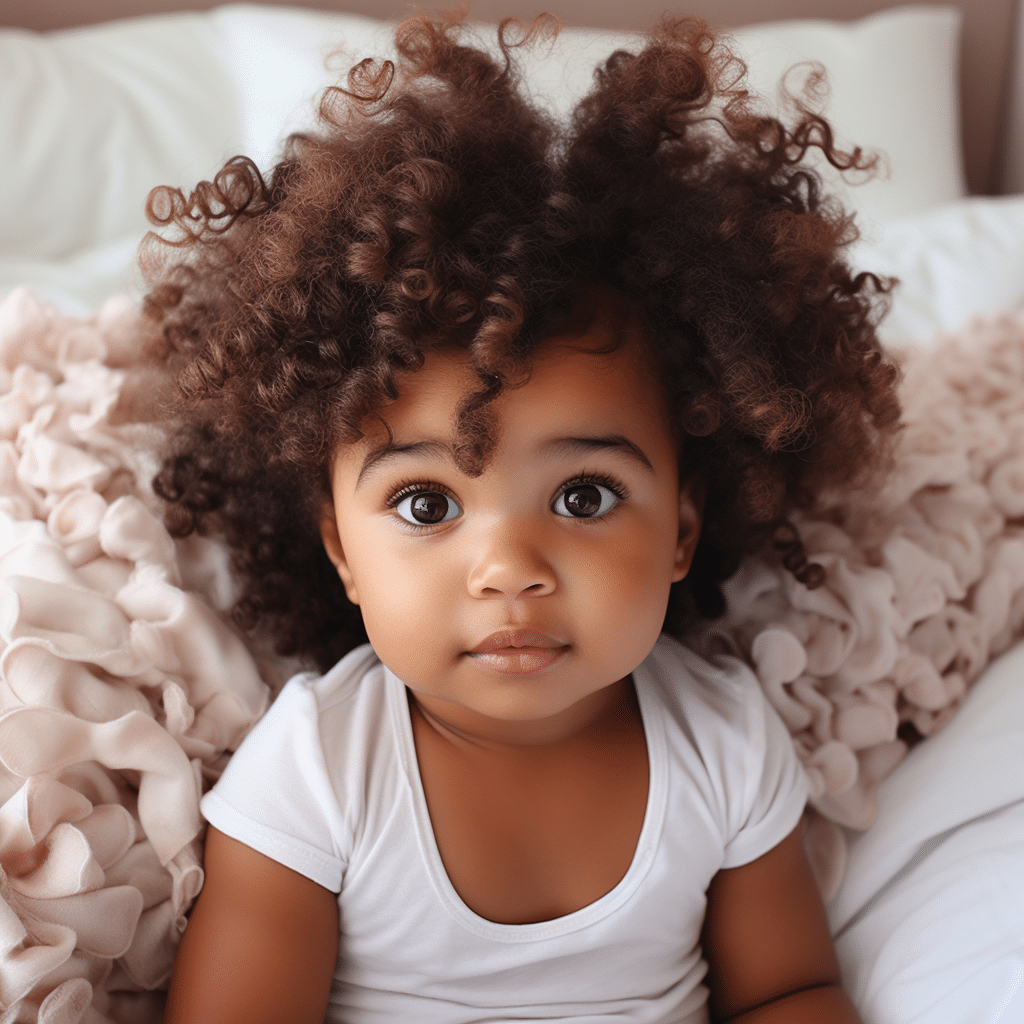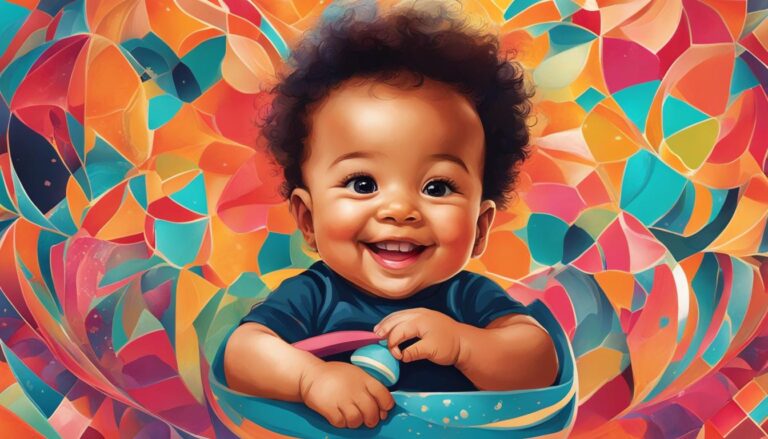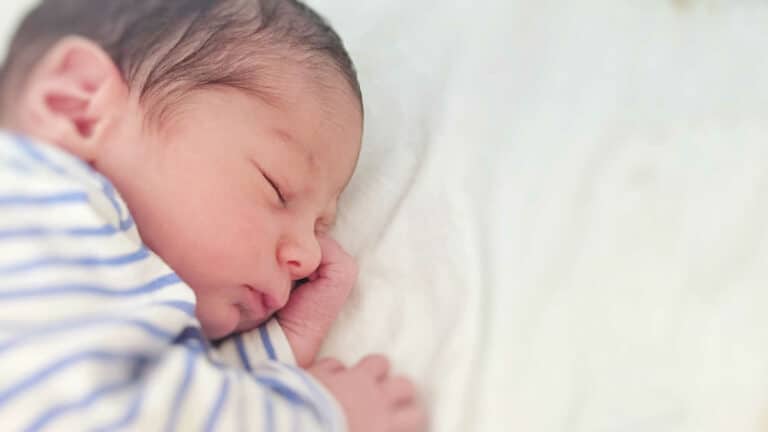Caring for African American Newborn Hair: Essential Tips
Introduction to African American Newborn Hair Care
African American newborn hair care needs special attention. Knowing its unique requirements is essential for healthy growth and avoiding damage. Key to this is thorough cleansing, moisturizing, and protective styling.
Start with a sulfate-free shampoo designed for African American babies. This retains natural oils while cleaning the scalp. Shampoo once a week.
Next, nourish the hair follicles with leave-in conditioner or natural oils such as jojoba or coconut. This keeps the scalp hydrated and stops dryness and breakage. Repeat regularly to retain softness and boost growth.
Protective styling is also important. Braids or twists keep fragile strands safe from manipulation and friction. They reduce tangles too, making combing/brushing easier.
Understanding the Unique Needs of African American Newborn Hair
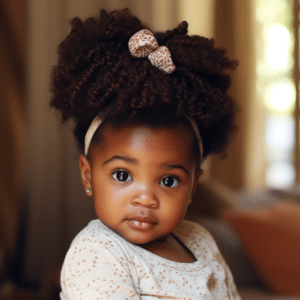
It’s vital to understand the needs of African American newborn hair for proper care. Here are three key points to consider:
- Moisture is a must for African American newborn hair, as it’s usually drier.
- Handle and manipulate the hair gently to avoid breakage and encourage healthy growth.
- Use natural, sulfate-free products specifically designed for African American newborns to keep the hair healthy.
Remember, African American newborn hair needs special attention. Don’t use harsh chemicals or too much heat as these can cause damage. Opt for natural and nourishing products instead.
The unique beauty of African American newborn hair has been discriminated against for centuries. Nowadays, there are more resources to help parents care for their babies’ hair. Natural afros, cute puffs – these essential hair care practices will make African American newborns look amazing and ready for anything (or just a good nap).
Essential Hair Care Practices for African American Newborns
African American newborns need special hair care to keep their locks looking healthy and energetic. Here are some key tips:
- Go for a gentle shampoo made for African American hair. Avoid removing their natural oils.
- Make sure to moisturize with leave-in conditioner to prevent dryness and breakage.
- Untangle using a wide-toothed comb or your fingers. This will stop damage.
- Rather than heat styling tools, go for protective hairstyles like plaits or twists.
- Help hair growth by massaging the scalp with natural oils like coconut or jojoba.
For extra love:
- Choose silk or satin pillowcases and bonnets. This lowers friction and keeps hair moisturized.
Fact: African American babies often have thicker, curlier hair than other ethnicities, says WebMD.
It takes more effort than a Kardashian beauty routine to look after African American newborn hair.
Tips for Maintaining Healthy Hair for African American Newborns
Healthy hair for African American babies is critical for their overall wellness. Here are some guidelines to follow:
- Utilize a tender shampoo and conditioner crafted for African American hair. This will help keep the baby’s scalp clean without taking away natural oils.
- Refrain from using severe chemicals or heat styling tools on the baby’s hair. These can cause harm and dryness, resulting in breakage.
- Moisturize regularly with a leave-in conditioner or natural oils such as coconut or shea butter. This will keep the hair hydrated and avert dryness.
- Gently untangle the baby’s hair with a wide-tooth comb or your fingers. Start from the ends and move up to avoid causing any pain or breakage.
- Remember to protect the baby’s hair during the night by using a satin or silk bonnet or pillowcase. This will help maintain moisture and lessen friction while they sleep.
In addition, diet and overall health are important for better hair health of your newborn. Give them proper nutrition, lots of fluids, and regular visits to a pediatrician for enhanced wellness.
From wild curls to snarled locks, African American newborns have hair issues that even Rapunzel would envy!
Common Hair Concerns and Solutions for African American Newborns
African American newborns need special hair care due to their unique texture and needs. Below are the common concerns and solutions:
- Dryness: Babies may have dry hair, which can lead to breakage and lack of moisture. Use a moisturizing shampoo and conditioner specifically for their hair type. Plus, massage the scalp with natural oils like coconut or olive oil to keep it hydrated.
- Tangles: Coily hair tends to tangle easily. Use a wide-toothed comb or soft-bristle brush when styling. Detangling products can make it easier and reduce breakage.
- Scalp sensitivity: African American newborns may have sensitive scalps that can be easily irritated. Choose gentle products without sulfates, parabens, or artificial fragrances. Massage the scalp with natural oils for comfort.
- Limited growth: Genetics play a part in hair growth. Eat a healthy diet with vitamins and minerals to support growth.
Clean and moisturize the baby’s hair regularly. Handle their strands with care and avoid applying tension when styling. Protect their hair with braids or twists to minimize manipulation and promote growth. With professional advice, you will be able to manage their curls.
Seeking Professional Advice for African American Newborn Hair Care
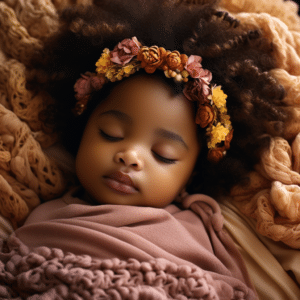
When it comes to African American newborns, specialized care is key! Their unique texture requires special attention and techniques that only experts can provide. Seeking professional advice ensures your baby’s hair is healthy and beautiful.
African American newborns often have delicate and tightly coiled hair. Consulting a hairstylist who specializes in ethnic hair is crucial. They can advise on gentle cleaning, moisturizing, and styling techniques that suit your baby’s needs.
Experts can also help you understand which products are best for African American newborns. The right shampoos and conditioners can prevent dryness, breakage, and scalp issues. Professionals can recommend suitable brands and guide you through proper product application.
Every child’s hair is unique. So, seeking expert advice means you get tailored recommendations. From understanding how often to wash their hair, to discovering styles that promote healthy growth – professionals can give invaluable insight.
I recently heard a story of a mother who sought professional advice. She was struggling to manage her daughter’s curly locks, but with the help of a hairstylist – she learned how to clean, condition, and style her baby’s hair without causing damage.
Seeking professional advice for African American newborn hair care is an investment in your child’s well-being. Entrusting experts with their unique needs provides the best possible care for their precious locks – unlocking a world of healthy hair possibilities. Embrace the curl, love the kink, and nurture the unique beauty of African American newborn hair – because we all deserve fabulous hair from day one!
Conclusion: Nurturing and Embracing the Unique Beauty of African American Newborn Hair
It is key to nurture and embrace the unique beauty of African American newborn hair for their well-being and self-confidence. A gentle, consistent hair care routine is needed. African American newborn hair tends to be more delicate and prone to dryness. Products specifically designed for their needs must be used. Natural and organic ingredients are best to prevent irritation and support healthy growth.
Washing should be done with a mild shampoo or cleanser. This should be done once every week or two, depending on the baby’s activity level. Gently massage during shampooing to boost blood flow and help follicle growth.
Leave-in conditioner or detangler should be applied after washing. This will keep the strands hydrated and easier to comb later. Combs or brushes with soft bristles should be used for styling. Heat styling tools should be avoided as much as possible.
Protective hairstyles, like braids or twists, can shield delicate hair from external factors. This can contribute to their self-esteem and promote healthy growth. Appreciate the diversity in hair textures that enriches our world.
